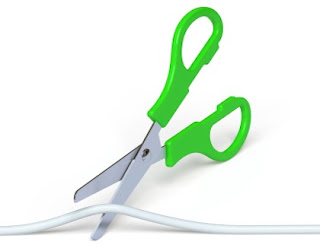So, we upgraded from Virgin's XL broadband package to XXL (20Mb to 50Mb) and when we got our bill in our monthly charges had increased by £21 per month. Not what I was expecting. The price differential between these two is around £8 on the website - of course this is the quoted prices for new customers, existing customers like us will be on various retention deals which include discounts. On further inspection the increase was largely down to the removal of our discounts, which customer services told me could not be applied now that we had made the "big jump" to 50Mb (this is despite the recently announced news that existing XL BB customers are to be moved to 30Mb free of charge).
Obviously, we're not too impressed and decided to cut down on our bill by cancelling our TV service. One pricing quirk which this revealed is that Virgin charge less for 50Mb broadband on its own than they do when you have an additional TV service - which I couldn't find anyone at Virgin to explain the sense of. So... as of next month, we'll be back to Freeview. Of course, things have moved on a bit since the last time we ditched cable TV....
The emergence of the iPlayer and the associated 'catchup' services from the UK's commercial broadcasting outlets has massively increased the free-to-view options for consumers. For me, however, I'm never going to watch video on a PC for longer than five minutes, so I need some sort of TV-based solution. Luckily, the PS3 has apps for iPlayer, ITV Player and 4oD these days, giving us access to recent programmes from the various BBC, ITV and Channel 4 channels. I've noticed that a number of films are being carried on these services these days too.
In addition, as I discussed before, the PS3 has films from the PSN Video Store and the apps for Lovefilm and MUBI. It has browser-based access to services such as Blinkbox and Youtube XL, which are optimised for a sofa-based surfing experience. A number of independent film channels have launched on Youtube, including IndieMoviesOnline, which provide ad-supported access to hundreds of free movies (of varying quality, of course).
Given all this, why should anyone actually pay for TV anyway? There are a few things which would, had I bottomless pockets, have given me pause:
- Sports, specifically football. In the UK, Sky have got a heavy lock on football coverage - particularly on top-flight league football (Barclays Premiership). Then again, the BBC and commercial terrestrial channels provide some Champions League, Europa League, FA Cup and Championship coverage - plus highlights of Premiership and other matches.
- High Definition - HD does look lovely. There is a real lack of HD streaming content available, largely due to restrictions in network bandwidth, but also through lack of legally available content from rights owners.
- Reliability - We have never had an issue with Cable TV in 5+ years. It just works, pretty much all the time. This is not the case with even the best fibre-based broadband.
But, having said all that, we have 50Mb broadband now. This is more than enough to handle HD quality streaming and, once services in the UK ramp up to meet the inevitable demand, the potential is there for a pay-TV beating proposition. Even now, the streaming and download options for film and TV content (and I mean on a purely legal basis) are compelling on a cost and quality basis.
IPTV and internet video is a growing movement and dedicated STBs such as Boxee, Roku and game consoles, plus the fact that any new TV you're likely to buy these days will incorporate a web portal and net connectivity, mean that it will only increase in popularity.
Here's a great video series on cord cutting from the excellent gigaOM website.

No comments:
Post a Comment